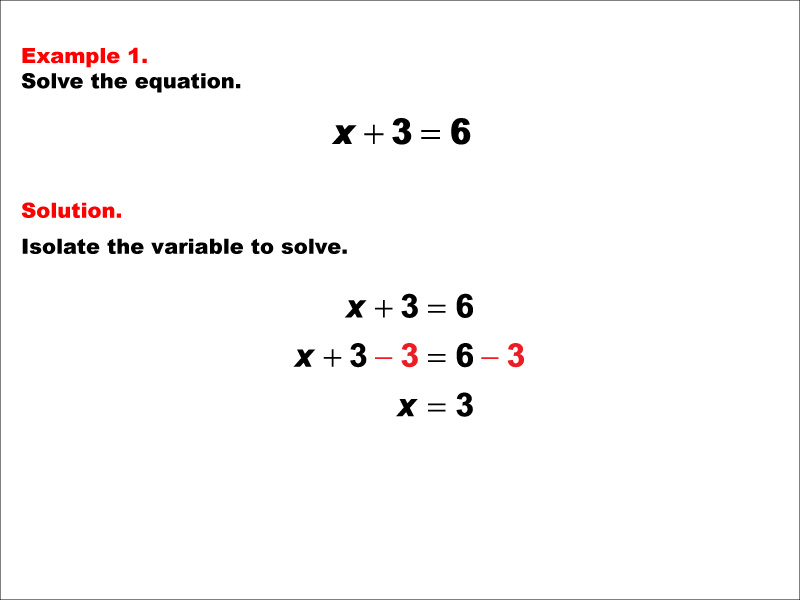
Display Title
Math Example--Solving Equations--One-Variable Equations: Example 1
Display Title
One-Variable Equations: Example 1

Topic
Equations
Description
This example illustrates solving a basic linear equation with one variable. Linear equations are fundamental in algebra, representing relationships where the highest exponent of the variable is one. Solving these equations typically involves isolating the variable on one side of the equation. This can be achieved by performing operations such as addition, subtraction, multiplication, or division on both sides of the equation. In this specific example, the equation might be something like ax + b = c, where you would subtract b from both sides and then divide by a to solve for x. The solution process is straightforward and forms the basis for more complex algebraic manipulations. Understanding how to solve linear equations is crucial as it applies to various real-world problems, including finance, engineering, and science. The specific solution to this example would involve substituting the known values into the equation and performing the operations to find the value of the unknown variable.
For a complete collection of math examples related to Solving Equations with One Variable click on this link: Math Examples: Solving Equations with One Variable Collection.
| Common Core Standards | CCSS.MATH.CONTENT.6.EE.B.7, CCSS.MATH.CONTENT.7.EE.B.4.A |
|---|---|
| Grade Range | 6 - 8 |
| Curriculum Nodes |
Algebra • Expressions, Equations, and Inequalities • Solving Multistep Equations • Solving One-Step Equations • Solving Two-Step Equations |
| Copyright Year | 2013 |
| Keywords | variable, equation, solution, one-step equation |